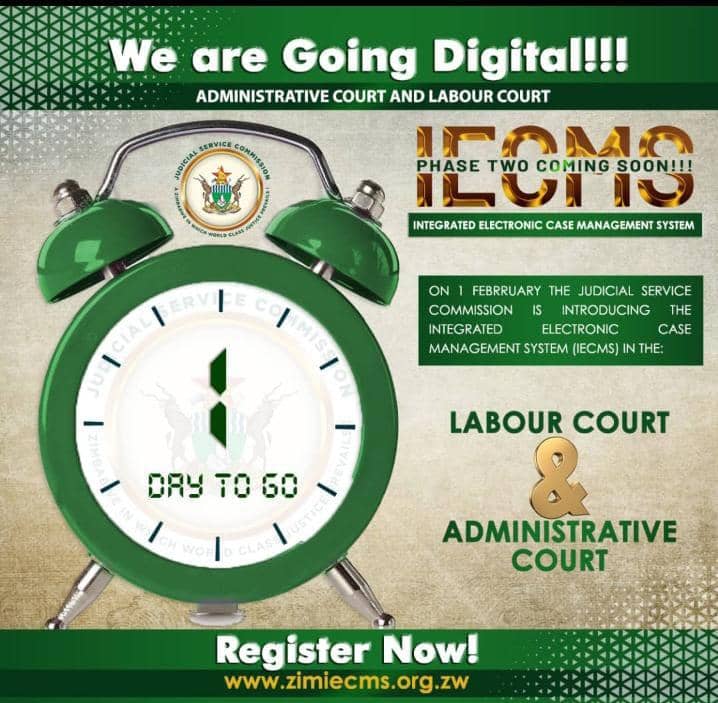Natalie Nyathi
THE Judicial Services Commission has introduced the Integrated Electronic Case Management System (IECMS) into its second phase which will see the Labour and Administrative courts going digital starting February 1( February).
The development will see those who register with the system accessing the system using passwords.
While in the system, one can check the progress of their case online, file documents electronically, access judgments, and e-payment of fees, and also see the rolling out of virtual hearings wherein parties to a case, who are registered, receive a link on their gadgets to participate in a virtual trial in the comfort of their homes or offices.
The Judicial Services Commission head of corporate services, Daniel Nemukuyu, confirmed the development.
“We are entering the second phase of the Integrated Electronic Case Management System IECMS, starting February 1 this year. The second phase will see the implementation of the noble program at the Labour Court and Administrative Court.
“The Labour Court and Administrative Court are going live on February 1. We are rolling out training programs countrywide to ensure that all current and potential court users register with the system to enable them to litigate in our two courts,” said Nemukuyu.
A desktop or laptop computer or a smartphone connected to the internet with a valid email address is needed to allow the user to lodge legal documents.
During the engagements, there will also be instant registration for those who wish to have IECMS accounts.
Nemukuyu said: “More awareness and educative programmes are lined up this month to ensure that all people appreciate the new system, register with it and ultimately have access to justice.”
IECMS is a web-based system that is developed to make the functional areas in Judicial Service more efficient and effective.
Access to justice has become an important issue in many justice systems around the world and increasingly, technology is seen as a potential facilitator of access to justice, particularly in terms of improving justice sector efficiency, thus one of the main intentions of this project is to control and allow complete registration of all court cases and tracking of current case status and location to enhance public access on the web, discourage clients from going to court and also following up on cases days after the filing them.


